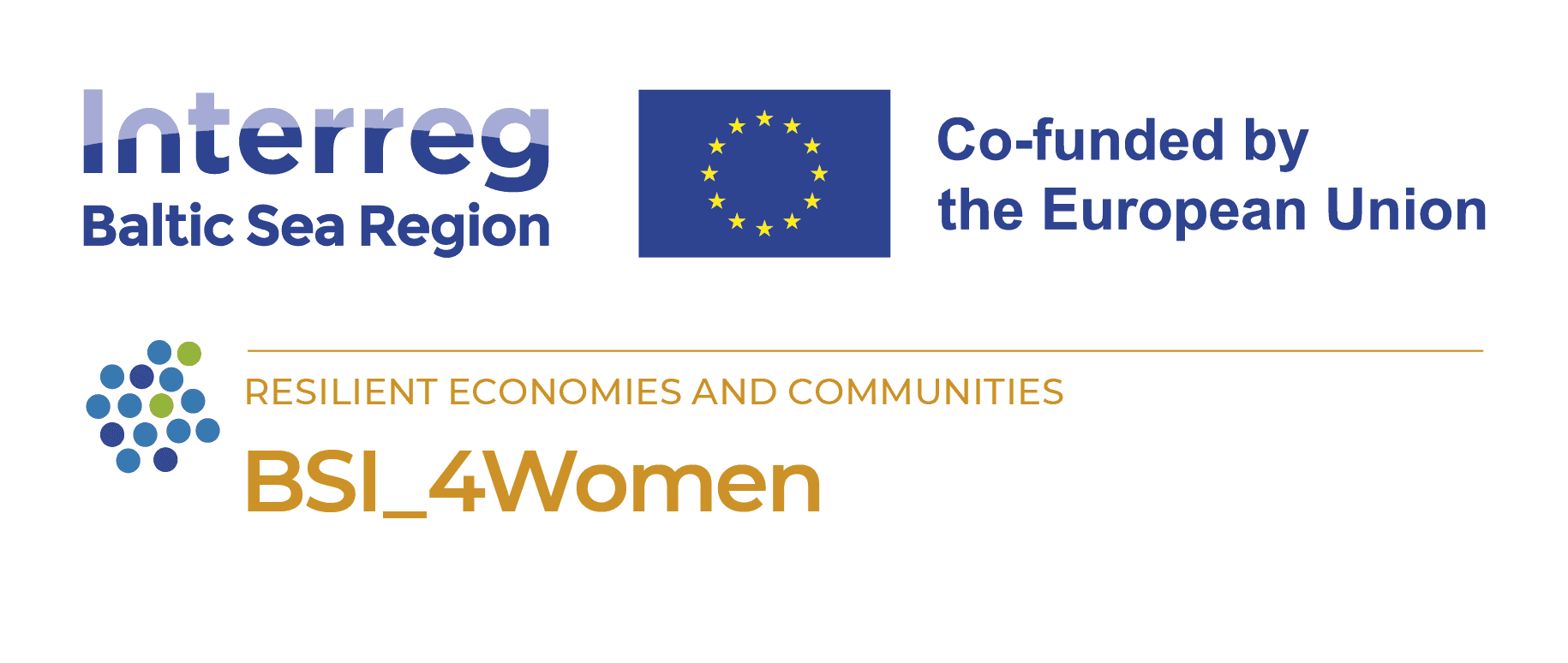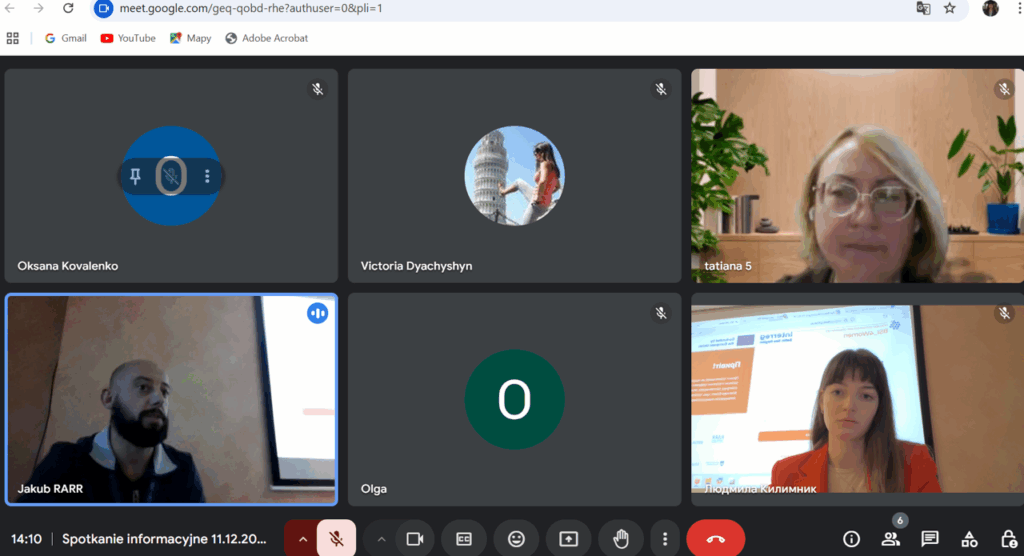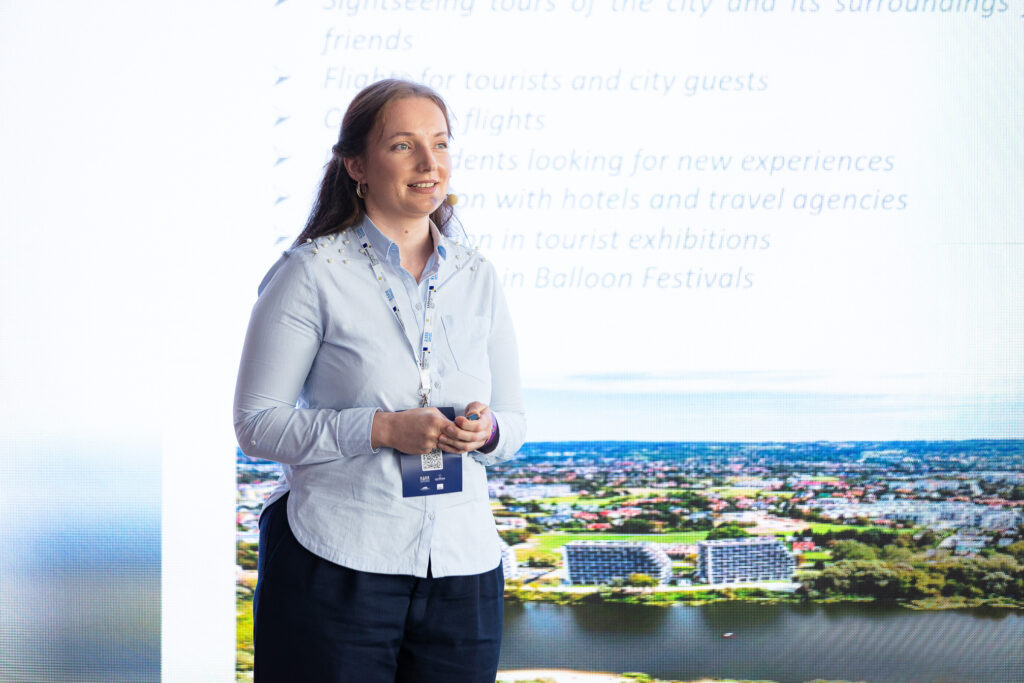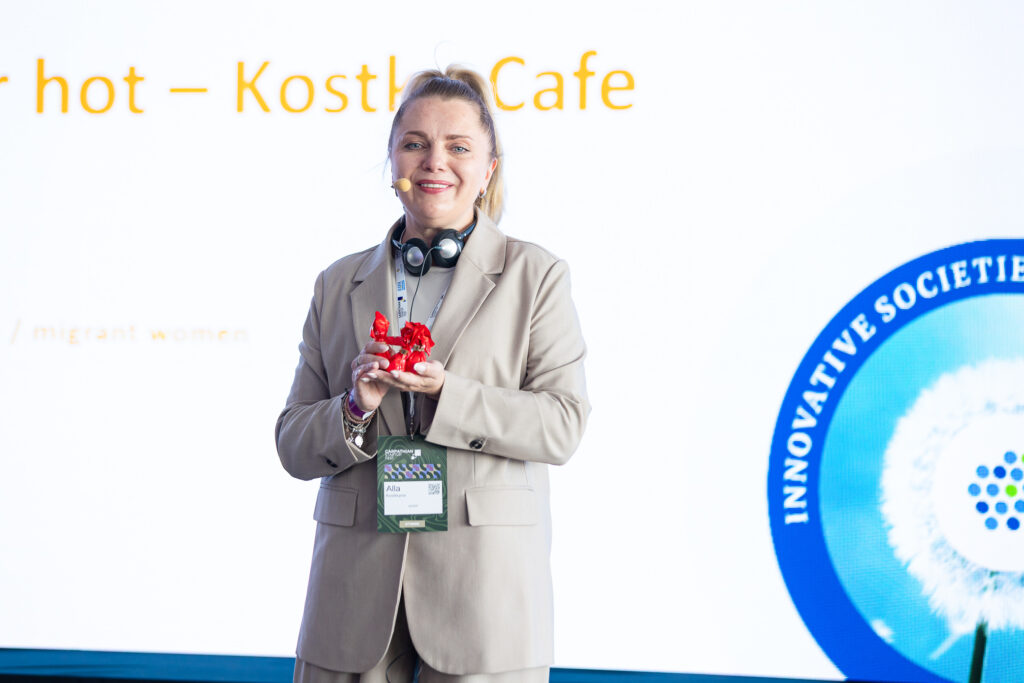
Pilot Action in Poland
14 November 2025
BSI_4Women Pilot Action: Implementation of the Incubation Programme for Refugee Women in the Podkarpackie Region, Poland
The Polish pilot of the BSI_4Women project was implemented by the Rzeszow Regional Development Agency (RRDA) within the Interreg Baltic Sea Region Programme. Its aim was to support refugee and migrant women living in Poland in developing and implementing their business ideas, while strengthening their entrepreneurial skills, self-confidence, and integration into the local community.
The recruitment process began in November 2024 and lasted until mid-January 2025. It was conducted through the digital BSI_4Women platform, which allowed participants to apply, track progress and communicate directly with the project team. The campaign was promoted through multiple communication channels: the RRDA website, official Facebook page, and several social media groups dedicated to Ukrainians living in Poland. Announcements were published in stages, providing clear information about the project, conditions of participation, and links to the platform. Information about the recruitment was also disseminated by partner organisations such as the International Centre for Integration Feniks, Profil Foundation and Caritas, which shared the materials on their websites and through their networks working directly with refugee and migrant women. On December 11, 2024, an informational meeting was organised both online and in-person at RRDA headquarters in Rzeszów. Eight women attended, learning about the project’s goals, the functionality of the digital platform and the opportunities it offered. The hybrid format allowed participation even for those living outside the city or caring for children at home. By the end of December 2024, forty-one women from Ukraine living in Poland had registered on the digital platform, and sixteen submitted full applications to the programme. Twelve women were approved and signed participation agreements.

During the incubation phase, each participant received an individual incubation plan tailored to her stage of development—from the initial idea to the practical steps needed for market entry. These plans included diagnostics of individual needs, recommendations for training and advisory support, and a roadmap for developing their business models. The mentor played a key role throughout this process, guiding participants step by step, identifying learning priorities and connecting them with suitable experts. The mentoring process combined technical and emotional support: it involved regular one-to-one sessions, progress reviews and continuous encouragement. The mentor organised and coordinated a wide range of workshops and expert consultations, prepared participants for the regional Demo-Day, assigned practical tasks, and monitored completion. In total, twelve women benefited from more than two hundred hours of individual mentoring, including work on business modelling, target audience definition, legal structure, marketing, psychological resilience, and preparation for public presentation of their projects.
A vital part of the incubation programme was a series of thematic workshops and individual consultations that complemented the mentoring process and allowed participants to develop both business and practical skills. Seven experts were involved in delivering specialised support covering legal, financial, marketing, design, business development and technical topics. The workshops were organised between March and May 2025, mostly as hybrid events, combining in-person sessions at the RRDA office in Rzeszów with online participation for women living in other cities or balancing family duties.
The training agenda was carefully designed to reflect the real needs of the participants and the Polish business environment. Sessions included “Possibilities of obtaining financial support – overview of national and EU programmes,” “Legal aspects of setting up and running a business in Poland,” “Financial aspects of running a business – rules specific to Poland,” “Business plan – substantive part,” “Business plan – financial part,” “Cultural differences and business culture,” and “Regional Innovation Ecosystem.” Each workshop combined theoretical knowledge with case studies, examples and open discussion.
In addition to group training, the participants benefited from twenty-eight individual advisory sessions tailored to their specific business ideas and stages of progress. These consultations included legal counselling (four participants), financial and tax advice (eight participants), business plan development (four participants), market and customer needs analysis (three participants), marketing and visual identity consulting (five participants), graphic design support for logo creation (three participants) and technical consulting (one participant). Each advisory session offered personalised guidance, practical tools and feedback that helped refine the participants’ business strategies. For many of them, it was the first time they could discuss their ideas directly with professionals in these fields, which increased their confidence and understanding of how to move from concept to implementation.
These workshops and consultations proved to be one of the most valuable components of the incubation programme. They not only built participants’ technical knowledge and entrepreneurial competences but also fostered a sense of community and collaboration. Women often described these meetings as moments of discovery and empowerment — opportunities to see their own potential and to realise that their ideas were both needed and feasible in the Polish market.
The business ideas developed under the Polish pilot were diverse, reflecting the creativity and determination of the participants. They included a mountain-themed café offering regional cuisine and décor, a mobile medical clinic, a psychological counselling office, a multidisciplinary psychological development centre, a legal consultancy for migrants, a hot-air balloon, a children’s development and education centre, a travel platform, creative workshops based on recycled materials, an upcycling studio producing denim accessories, a car painting workshop, and the “Kostka Café” concept combining cafe and board games. This variety demonstrated how the programme not only stimulated entrepreneurship but also allowed women to connect their professional experience and passions with real community needs.
The regional Demo-Day took place on May 16, 2025, at RRDA in Rzeszów and served as an opportunity for participants to present their ideas before an evaluation panel consisting of representatives of the Rzeszów City Council, the Rzeszów University of Technology, and the RRDA. The atmosphere was both professional and emotional, as for most participants it was the first time they publicly presented their own business projects. Four business ideas were presented: Rzeszów Hot Air Balloon, Kostka Café, Children’s Development Centre “Kidzity” and Travel Portal. The jury awarded two projects — the hot-air balloon and the board-game café — for their innovation and social value. The preparation for this event was a demanding but empowering process. With the mentor’s guidance, the participants practised their pitches, refined their business plans, and gained confidence in their ability to articulate their visions. Even those who were initially anxious about speaking in public left the event inspired by the positive feedback and professional recognition they received.
Two participants from the Polish pilot were then nominated to represent the region at the Transnational Demo-Day held on May 21, 2025, in Jasionka as part of the Carpathian Startup Fest 2025 , alongside teams from Norway, Sweden, Denmark, Lithuania, Latvia, and Estonia. Presenting their ideas on an international stage was a transformative experience. It was the first time they stood side by side with European entrepreneurs, exchanged experiences and received feedback from experts from across the Baltic Sea region. The event not only strengthened their communication and presentation skills but also boosted their self-esteem and motivation to continue their professional journey.

After the incubation phase, participants received post-incubation support tailored to their emerging needs. Between May and June 2025, individual consultations wereprovided in business planning, marketing, legal issues and technical development. Two women received full business plans prepared by project experts; four benefited from advanced marketing consultations; one received legal advisory, and another – technical consultation on website development. This follow-up stage proved crucial, as participants faced new challenges when moving from planning to implementation. Having access to mentors and specialists at this stage helped them refine strategies, address obstacles and maintain momentum.
Throughout the project, many participants faced significant challenges related to limited time, competing responsibilities, and financial insecurity. Most women were employed or attending Polish language courses, and several were mothers of young or multiple children. Joining the incubation programme required commitment and resilience. However, these challenges also became part of their growth. The mentor’s consistent support, flexible scheduling, and understanding of their daily realities allowed them to stay engaged and make steady progress despite demanding personal circumstances.
The impact of the Polish pilot extended beyond business results. Not all participants launched their companies immediately, but all of them completed the programme with a stronger sense of direction, enhanced competences and self-awareness. They gained essential business knowledge — understanding market conditions, legal frameworks and financial management in Poland — and, equally importantly, increased self-confidence and motivation. For some, participation led to practical achievements: one received formal permission from the City of Rzeszów to operate her business activity; another found a physical space for her workshops with children; several created their company logos and promotional materials. For others, the greatest success was personal: overcoming fears, rebuilding belief in their abilities and feeling more integrated into Polish society.
As one of Polish incubation program participant shared:
“I am deeply grateful for the opportunity to take part in the project. It helped me understand how to move forward, what to do and what to work on. Through this project, I gained new knowledge, experience, and valuable advice from experts, as well as the support of the mentor who guided me step by step and encouraged me when I felt like giving up. Some tasks were a real challenge for me, but each small step I took gave me confidence and showed that I was growing. I plan to keep moving forward — one small step at a time.”
The BSI_4Women pilot in Poland demonstrated that entrepreneurship can be a powerful tool for social and economic integration. It showed how a well-structured mentoring system, combined with targeted expert support and community engagement, can empower women who have experienced displacement to regain agency and rebuild their professional lives. The lessons learned from this pilot will inform future implementations of the BSI_4Women model across the Baltic Sea region, contributing to more inclusive, resilient and innovative local economies.
Interactive map showing pilot locations. Use the arrow keys to move the map view and the zoom controls to zoom in or out. Press the Tab key to navigate between markers. Press Enter or click a marker to view pilot project details.





